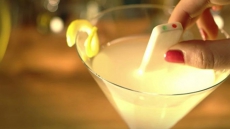It is well known that curiosity makes learning easier and a study led by an Indian-origin researcher has now found what happens in our brains when our curiosity is piqued.
Curiosity stimulates the activity in the brain circuit related to reward, and in the hippocampus, a brain region that is important for forming new memories, the findings showed.
Curiosity also increases interactions between the hippocampus and the reward circuit, the researchers found.
"So Curiosity recruits the reward system, and interactions between the reward system and the hippocampus seem to put the brain in a state in which you are more likely to learn and retain information, even if that information is not of particular interest or importance," principal investigator Charan Ranganath, a professor at University of California at Davis in the US.
"We showed that intrinsic motivation actually recruits the same brain areas that are heavily involved in tangible, extrinsic motivation," lead author Matthias Gruber, who is also from University of California at Davis, added.
For the study, the participants rated their curiosity to learn the answers to a series of trivia questions, and had their brains scanned via functional magnetic resonance imaging, during certain parts of the study.
Once their curiosity was aroused, the participants showed better learning of not only the questions that were interested in but also the entirely unrelated information that they encountered, but were not necessarily curious about.
People were also better able to retain the information learned during a curious state across a 24-hour delay.
"Curiosity may put the brain in a state that allows it to learn and retain any kind of information, like a vortex that sucks in what you are motivated to learn, and also everything around it," Gruber explained.
The findings could help scientists find ways to enhance overall learning and memory in both healthy individuals and those with neurological conditions.
The study appeared in the journal Neuron.





